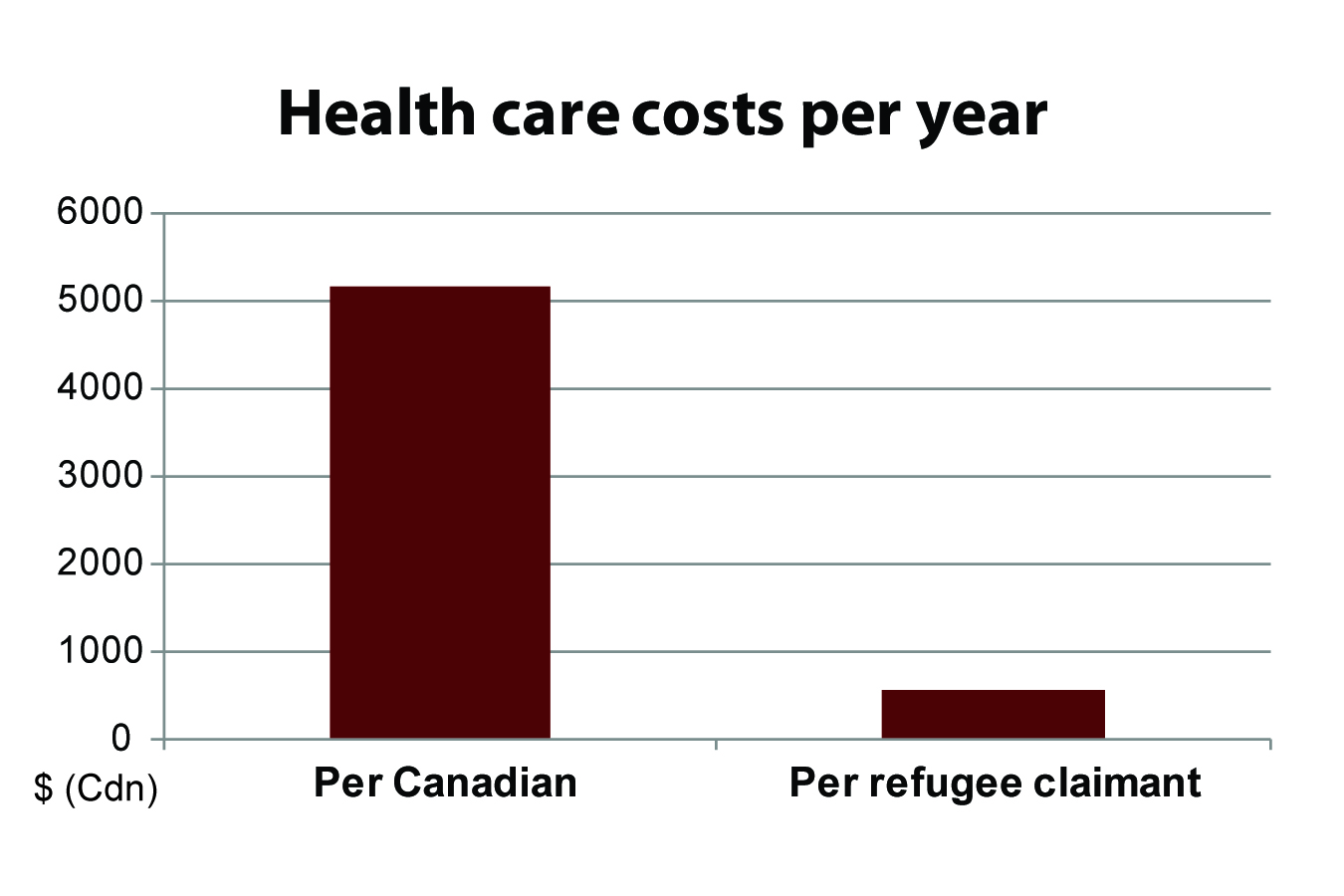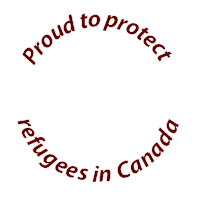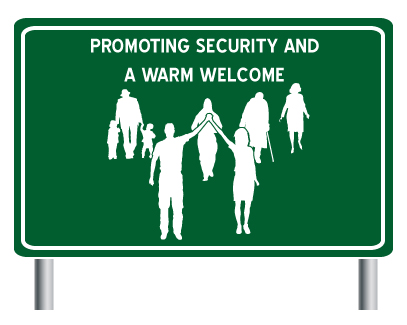|
Current issue and campaign pages: Cuts to the Interim Federal Health Program Refugee Reform - Bill C-31 changes to the refugee determination system Are you proud to protect refugees? Take action this Refugee Rights Day (4 April) |
|
Upcoming CCR meetings in 2013: Spring Consultation, Thursday, May 30 - Saturday, June 1 2013, Vancouver Fall Consultation, Thursday, November 28 - Saturday, November 30, Kitchener-Waterloo |
|
Register for upcoming webinars: 5 March - Canadian Immigration: Trends and changing attitudes (by the CCR Youth Network) 19 March - New Refugee Determination System: Updates and the Refugee Appeal Division (RAD) |
|
New CCR reports |
CONTENTS:
- Pressing for health care for refugees
- New designated countries of origin named, including Mexico
- This International Women's Day spread the word about conditional permanent residence and what to do in cases of abuse
- Are you proud to protect refugees? Join us this Refugee Rights Day (4 April)
- Announcing Promoting Security and a Warm Welcome, 30 May - 1 June 2013
- Top honours for long-time refugee advocate
---

February has been a month for refugee healthcare. We have seen court challenges to cuts to refugee healthcare, questions in Parliament and events across the country.
In addition, the CCR published Refugee Health Care: Impacts of recent cuts. This report highlights the impacts of cuts to refugee health, as well as the true costs (and benefits) of healthcare for refugees in Canada.

Even before cuts in June 2012, refugee claimants on average never received more than mininal health care services, despite complaints that the Interim Federal Health (IFH) Program was too generous. The Canadian Institute for Health Information calculated the 2008 costs per Canadian of health care as $5,162. Citizenship and Immigration Canada reported the IFH costs per claimant as $46 per month for 2007-2008, representing $552 annually (information obtained through Access to Information).
For more information about the impact of cuts to the Interim Federal Health Program and what you can do, see: http://ccrweb.ca/en/ifh
 Did you know that in 2012, 19% of Mexican claimants were found to be refugees by the Immigration and Refugee Board? Not only does that represent one in every 5 people, but with 568 refugees accepted, Mexicans were among the top three nationalities by number of refugees accepted (the others were China and Haiti). Many continue to speak out against the violence that has led thousands to flee Mexico and seek protection in Canada.
Did you know that in 2012, 19% of Mexican claimants were found to be refugees by the Immigration and Refugee Board? Not only does that represent one in every 5 people, but with 568 refugees accepted, Mexicans were among the top three nationalities by number of refugees accepted (the others were China and Haiti). Many continue to speak out against the violence that has led thousands to flee Mexico and seek protection in Canada.
Despite this, Mexico has been designated by the Minister of Citizenship and Immigration as a 'safe' country of origin for claimants. 35 countries have been named 'designated countries of origin' since mid-December. This means that Mexicans and other refugee claimants from designated countries of origin will have shorter timelines in the refugee process, no appeal and virtually no health care.
For more about the CCR's concerns regarding 'designated countries of origin' and other changes to Canada's refugee determination system, see: http://ccrweb.ca/en/refugee-reform
- This International Women's Day spread the word about conditional permanent residence and what to do in cases of abuse

For more information, visit: http://ccrweb.ca/conditional-permanent-residence on 8 March.

Following recent changes to Canada's refugee determination system, it may be tougher to protect refugees in Canada. Join us in showing Canadians and the world why we are still proud to protect refugees and refugee rights. Send a positive message about refugees in the face of negative discourse and restrictive changes.
Get involved and show your pride in protecting refugees in Canada.
As an organization:
- Adopt the ‘Proud to Protect Refugees’ slogan and theme for activities
- Post the declaration inside the organization, on the website, etc.
- Share stories of refugee contributions
- Raise refugee voices
- Promote positive messages about refugees
Check out these and other ideas at Proud to Protect Refugees for actions and activities as a group or on your own.
Looking for other ways to recognize Refugee Rights Day? Watch for CCR updates leading up to April 4th and check ccrweb.ca/en/refugee-rights-day for details.

Discussions at Promoting Security and a Warm Welcome will address issues relating to newcomer settlement and integration, refugee resettlement and refugee protection. Information and online registration will soon be available at: ccrweb.ca/meetings.
Could you or your organization contribute to the Consultation? Contact: consultation@ccrweb.ca
Are you in the Vancouver area and want to get involved? Contact Sherman Chan at: schan@mosaicbc.com
Sister Helen Petrimoulx recently retired from duties with the Diocese of London (in Windsor, Ontario). A long-time advocate for refugees and against human trafficking, she has now been formally recognized for her work, by being named to the Order of Ontario and with the Queen's Diamond Jubilee Medal.
Congratulations! These honours are well-deserved! Sister Helen has always been proud to protect refugees.
For more about Sister Helen and her work, read: Nun honoured for refugee work.
